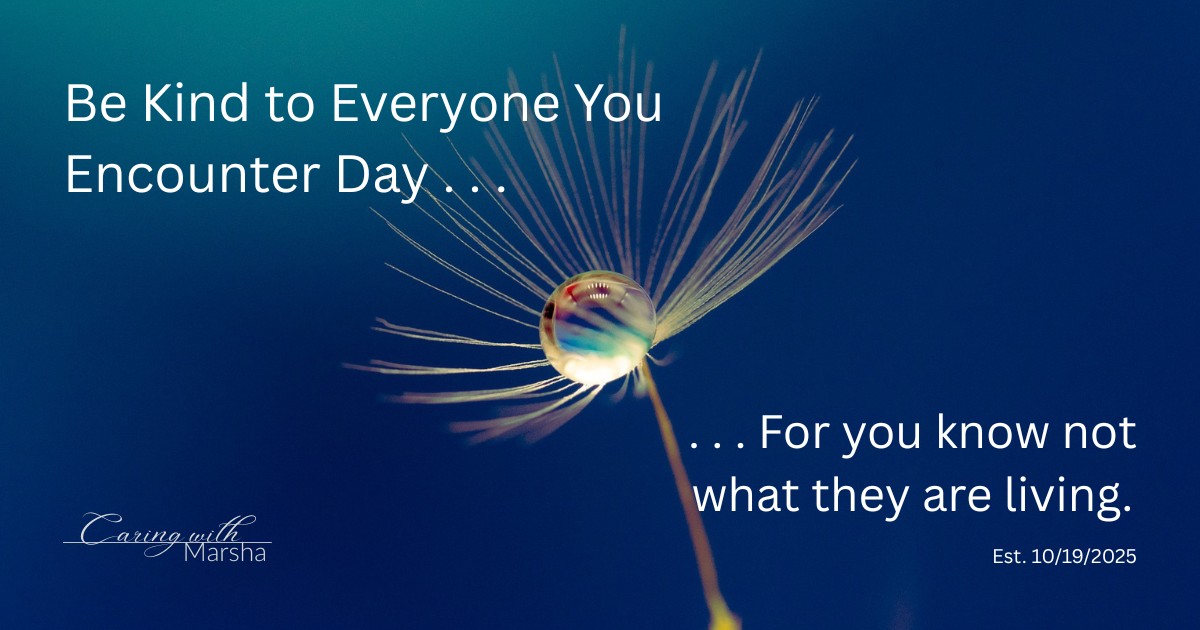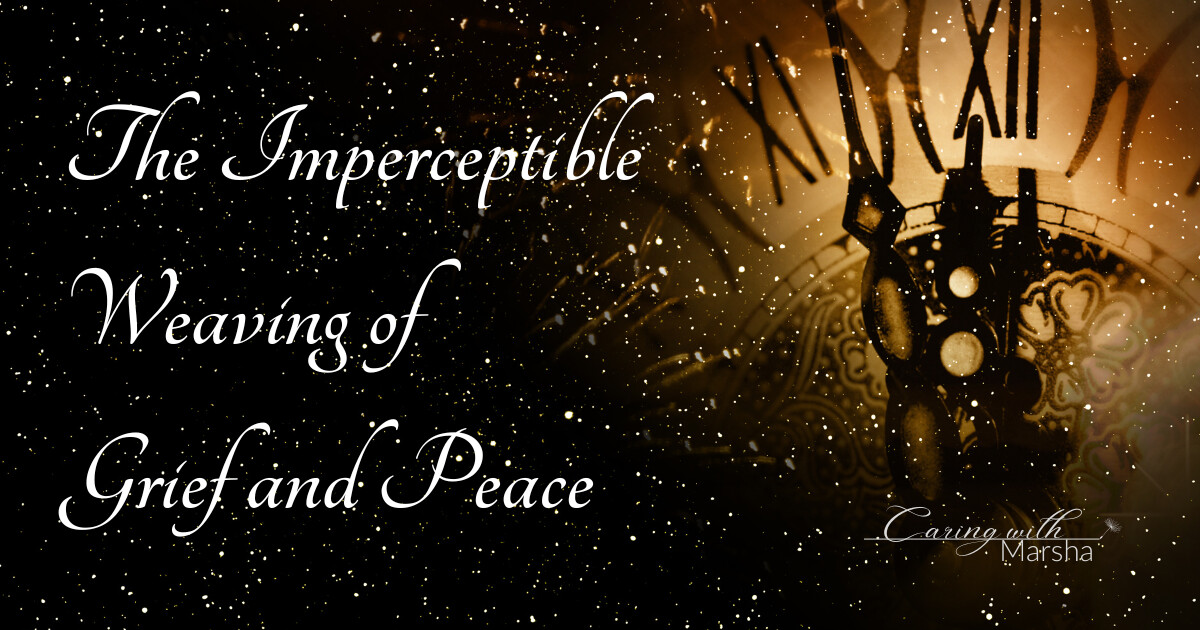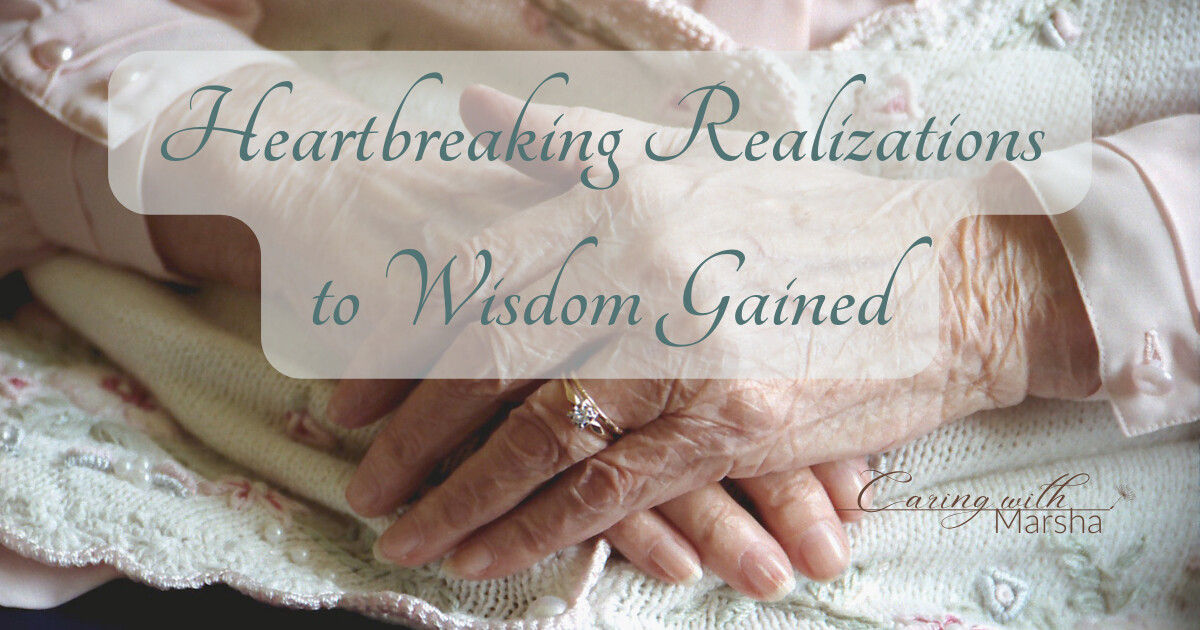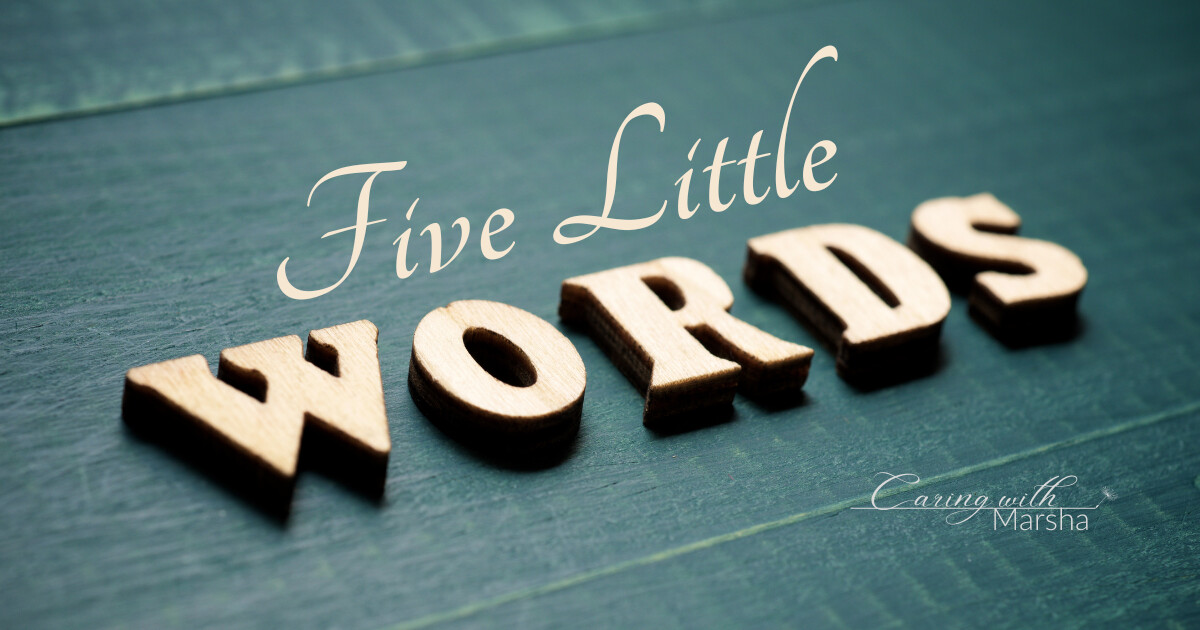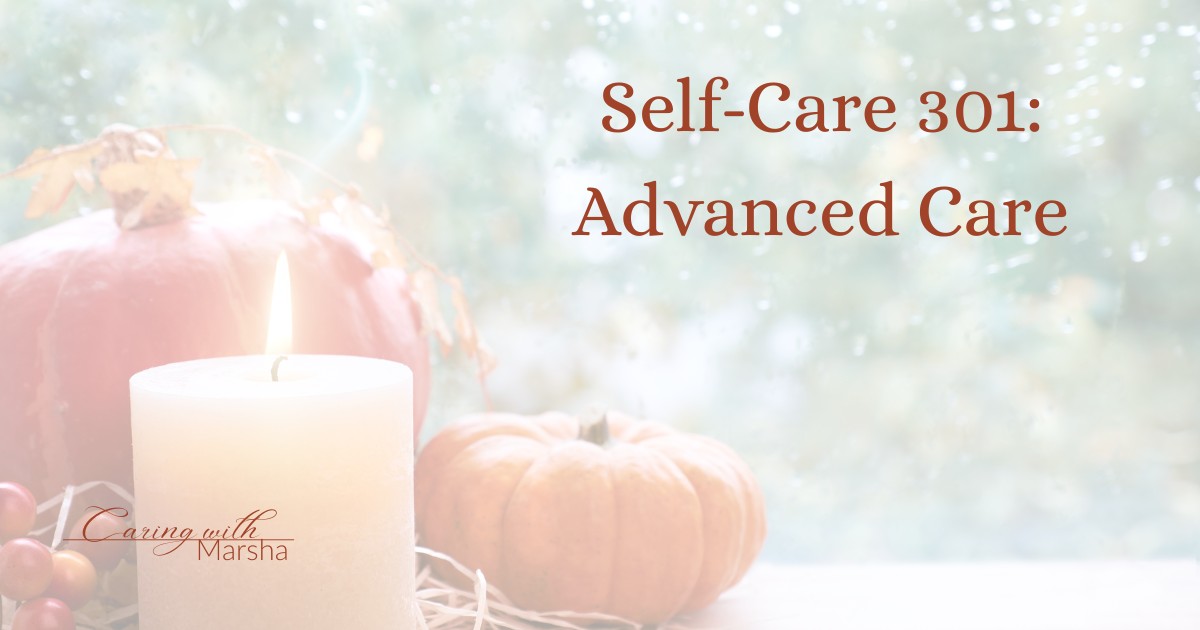
As I've wrestled with how to bring this website back to the here and how, I've also wrestled with another component I felt needed to be added - one that can stand alone on its own. One that fits well within the parameters of Caring with Marsha.
This website will always include information to help us understand and better support the widows, and widowers, in our lives. It will also include information for anyone suffering profound grief, a grief none of us knew existed until we found ourselves in the absolute thick of it.
As a caregiver to my husband, my mom, and for four years my dad as they each had been hospitalized any number of times before coming home on hospice, as well as becoming my sister with special needs full-time caregiver, I know what it is like to get lost in caregiving others. To not be able to find ways to take care of me beyond survival modes.
During those times I searched for ways to better care for myself. All I could find were variations of "Top Ten Ways of Self-Care" sort of posts. They contained things like: have a quiet cup of coffee to start your day; take a long, hot candlelit bath, etc. These are lovely ideas for someone who needs a break after putting a little one down for the night. They don't even begin to touch what someone in the deepest trenches needs!
As I'm catching up from a three-and-a-half-year hip injury that wouldn't allow me to sit for long without it screaming in pain, I'll be continuing to gather and organize information on all facets that will fit here, so it may be a bit before regular posts become, well, regular!
A friend challenged me to get away for a night or two at a cabin taking my junk journal supplies with me. I think I will instead take my laptop, some notebooks, my phone full of notes, and anything else that will help me get everything under control and organized, then get to writing!
Please be patient as I work my way back, and know I AM COMING BACK with loads of genuinely helpful info for widows/widowers/grievers and for "advanced" self-care tips!
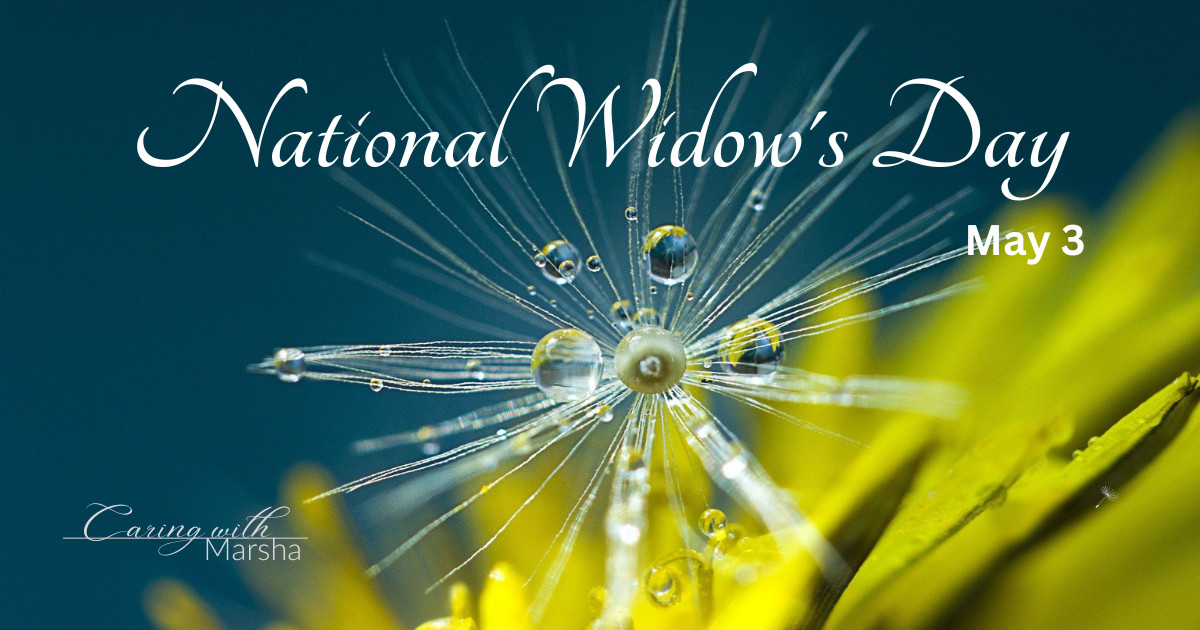
Every day is an important day to remember our family members and friends who have lost a husband or wife, but that's unrealistic and beyond anyone's scope. So, we have this special day to remind us to stay in touch with them and to remind them we love and/or care about them. To also remind them we remember the one they've lost. Oh, how important that is!
Because I can't pull words together today, here are some wonderful words from The Hope for Widows Foundation blog on this date back in 2020.
"Today on National Widow’s Day, do every widow you know a special favor. Talk about their dead spouse. Speak their name. As a widow one of the most painful things is to the think that others have forgotten your late spouse. Remember, that our lives were forever changed in a single moment. Our life as we knew it ended when our spouse died. The future we had planned vanished, never to happen. Our present became one of basic survival. We no longer felt whole, complete. A part of us died in that moment. And our loss should not and cannot be ignored. Our loss shaped us into who we are now. Someone new, someone who has lived in darkness and fought their way back to the light.
"Acknowledge our loss. Don’t ignore it, change the subject, or refuse to speak their name. These actions are hurtful, they make us feel alone. Like an outcast. Today of all days, honor a widow. Remember their life before death. Speak their spouse’s name. Honor a love so deep that even death cannot end it. "
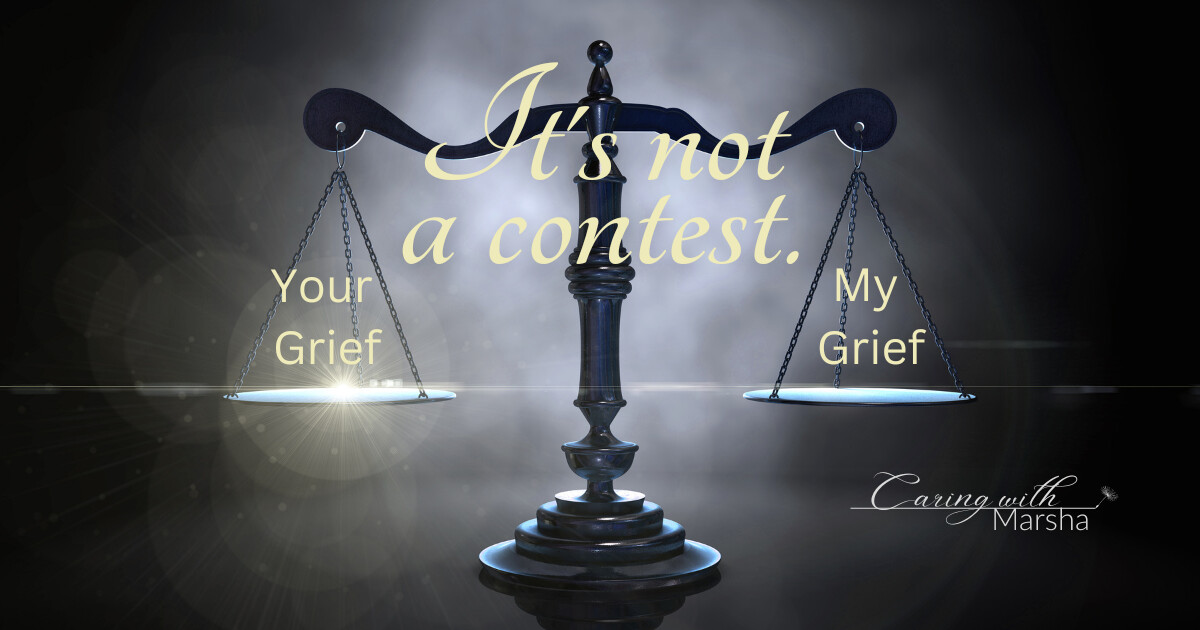
As we move further into this blog, and the coming resources, it's abundantly important to let you know where I stand on grief. After all, it's the foundation of why we are here.
* All grief is valid.
* All grief should be acknowledged.
* All grief should be respected.
* Grief, in all of its forms, should not be scaled or compared against someone else's - by any measure.
* All grief should be faced and worked through.
All of that said, this blog isn't here to say, "Your grief doesn't count compared to mine." Not in any way.
This blog is here to say some grief is beyond any perception, or expectation, or experience we may have. It's here to share what I've learned so you might better understand the people you care about who are grieving in an exceptional manner, a manner you may not understand.
Or, maybe it's you who are grieving, and you don't understand!
I've been there! I am there, though in a more settled way that I once was.
Grief is survivable. We can even thrive again with our old friend, Grief.
Let's link arms in true support of those we care about!
Marsha
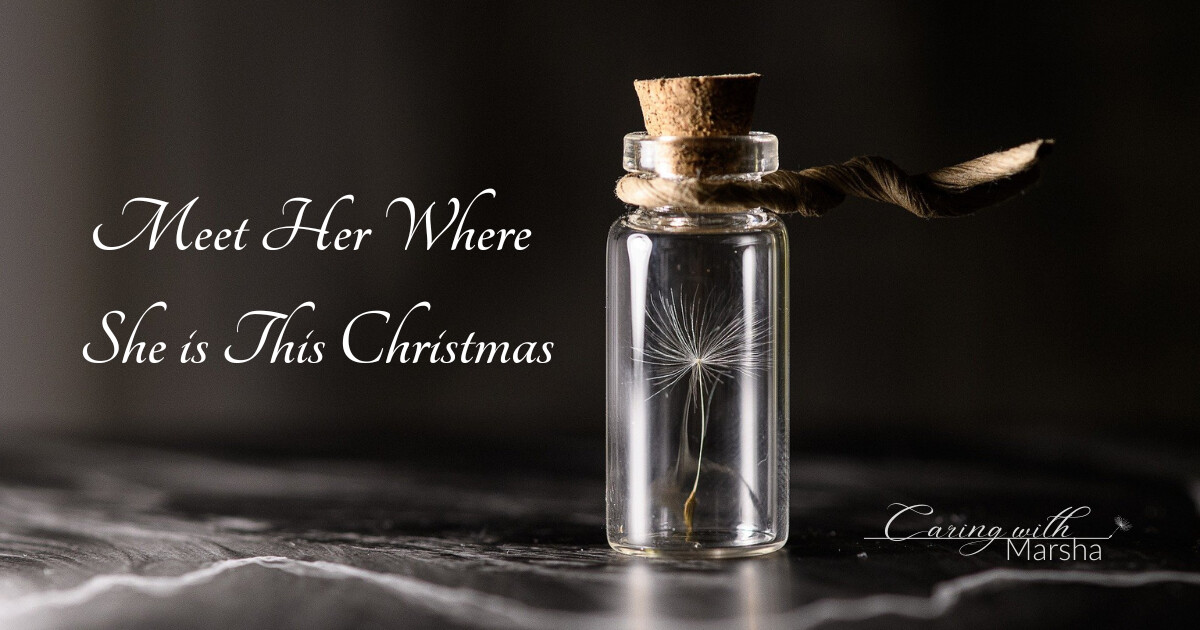
Christmas is a week away. A friend shared a post on Facebook this morning. I loved the message that was shared. In a nutshell, Jesus’ stepping down from Heaven wasn’t at all about giving us a reason to celebrate. “Jesus stepped down to pursue the broken and the hurting and the lost.”
That’s us, widowed friends and friends of widows. It’s a lot of other people, too, for sure. But, we can sure dig into what this young lady, Cassie, is sharing from her heart and her hurt.
It is perfectly okay if our grief overwhelms our attempts to, or even our desire to, celebrate in the usual holiday ways. It’s even okay if our grief leaks out, or roars out, of nowhere in the middle of a celebration. Hopefully we are with the ones we love and who love us if and when that happens. Either way, people need to understand our reality, one they may well live themselves someday. If we don’t let them see the reality, if we don’t teach them, they’ll be as lost as we were - and maybe still are.
Psalm 34:18 tells us the Lord is close to the brokenhearted and saves those who are crushed in spirit. How much more tangible could He be than to take on human form and walk among us?
We need to meet widows and others who are grieving where they are. It’s not incumbent upon us to “fix” them or to make them celebrate with us at our parties, at parades, at the ballet, or anywhere else, even at church. We cannot fix them. We cannot take their hurt away.
We CAN meet them where they are. We can invite and gently encourage them to join us. Just know, without a sliver of doubt, their grief will be coming with them. Please know that it is impossible to escape the grip of profound and traumatic grief. It has to loosen its grip on us in its own time, even at Christmas.
We can sit with them if they need to not celebrate. We can listen to them. We can demonstrate our care in bringing them cookies or a meal if they don’t want to celebrate. We can see if there are any little “honey do’s” that need to be taken care of.
Think of ways you show, or have been shown, care while you were sick or recovering from surgery. Translate that to your grieving friend who may or may not feel like celebrating the season now or in the weeks to come as we move through Christmas and New Year’s.
If you'd like to read Cassie's post, you can find it here over on Facebook.
Marsha
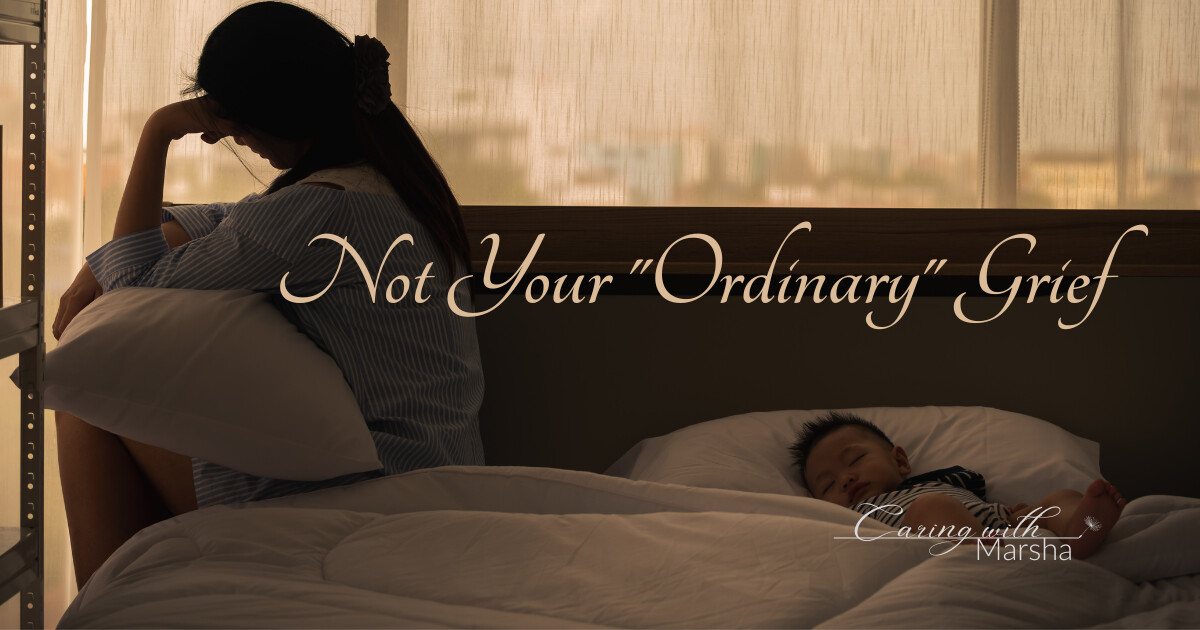
As we walk together through the ways we should view and interact with widows I want to share some of the realities behind the scenes not only from my experiences, but also from the widows I’ve come to know and love. I think it will help you to understand just how much we need to change the stigmas and expectations we have for widows and others who are experiencing traumatic grief ~ a grief so far beyond what most of us have experienced. A grief beyond our ability to even imagine.
I will forever miss my grandparents, and now my parents. I ache to talk with them about everyday things and things that loom large.
My husband, though. That’s a whole ‘nother level of missing and aches. I have reached for the phone to call him countless times, often winding up in tears. My natural reaction to call him squarely hits the reality that I cannot find him on the other end of the call. I often find myself wanting to call my parents, too, but it isn’t as earth shattering as when I go to to call my husband.
I have never missed my husband as much as when I was brutally weakened by chemo several years after his death. ALL I wanted was his shoulder to lay my weary head on. I know God was with me as I yearned from the depths of my being for my husband, but He gently reminded me that He knows “it is not good that man should be alone.” So much so He created Eve. It was okay for me to grievously ache for my husband.
Widows, and dare I say widowers, are not your “ordinary” grievers. We aren’t even close to what most people expect based on our own experiences or what we’ve learned from others.
Hey!?! We have learned one way. That means we can learn another way! A better way!!!
Back to my point. I can speak to this monumental difference in grief because I was a wife who, with her husband’s last breath, became a widow. With his last breath I landed in a place so foreign to me that I will never be the same. That doesn’t mean it is or was a bad place. It’s just a different place that forever alters where I’ve been and how I have had to move forward in my life. While the details are unique for me, every widow also lives this in her own unique way and in her own time.
My dad's hospice chaplain suggested a book about the brain and grief after conversations we had over mindset and neuroplasticity. The author, a widow, talks about traumatic grief and how its effects are markedly different from other grief. I’ll be sharing thoughts on that book in the future, but know that I devoured the book underlining passages and writing notes all over the margins as I went. This book was enlightening and validating on so many levels! The author gets this widowhood thing from a place I can't even explain, but she can and does.
Traumatic grief IS different. It does a serious number on the brain of a widow! It throws e.ver.y.thing off balance. It’s like having a rug pulled out from under you with no trace of the rug in sight. It causes us to wonder if we are remotely okay, or if we are losing it on a grand scale.
Last summer I had a long conversation with a dear friend’s husband. It was several months after her death. He asked me if what he was experiencing was normal and if he was okay. He had come to that place of understanding that his grief was no "ordinary" grief.
No one should have to wonder if they are losing their mind when grieving the loss of a husband, or a wife.
I want to help you understand traumatic grief as it relates to widows, and widowers, so you can see the words we use with them have a very different affect than we presume. I want to help you find better words that will have a more positive effect and truly help your widowed friends. As we move forward with this blog we’ll also talk about things you can do in the immediate aftermath and long after her husband’s death to give her the support you really want to give her!
Together, we’ve got this!
Marsha



